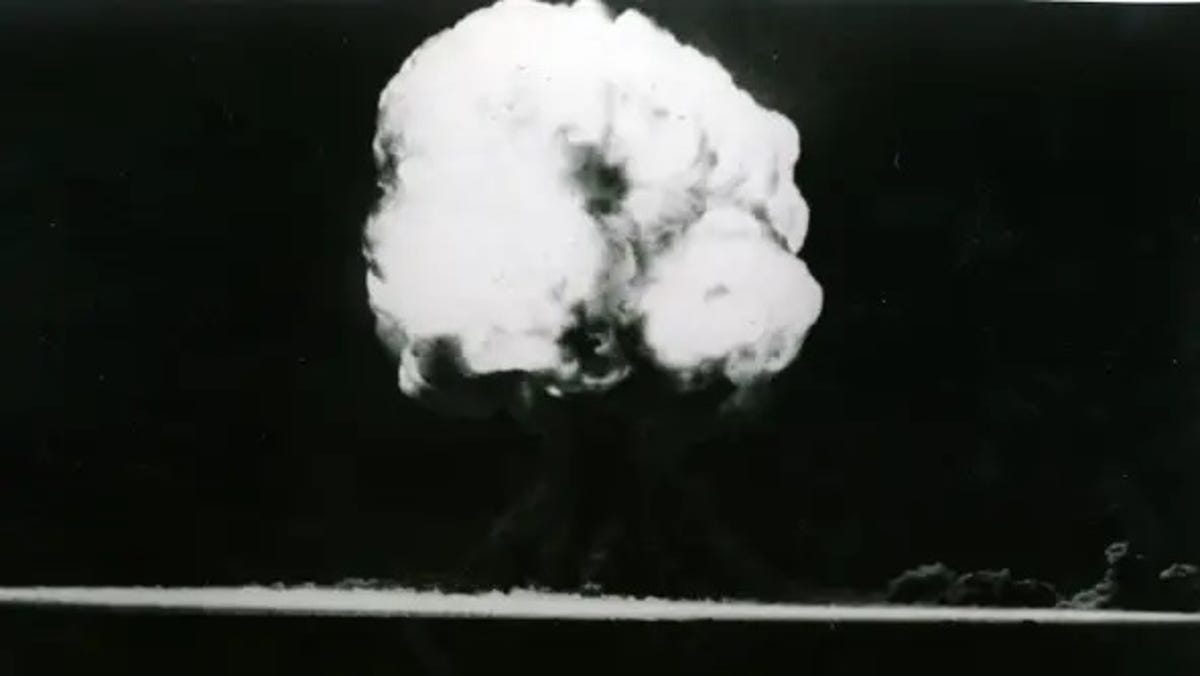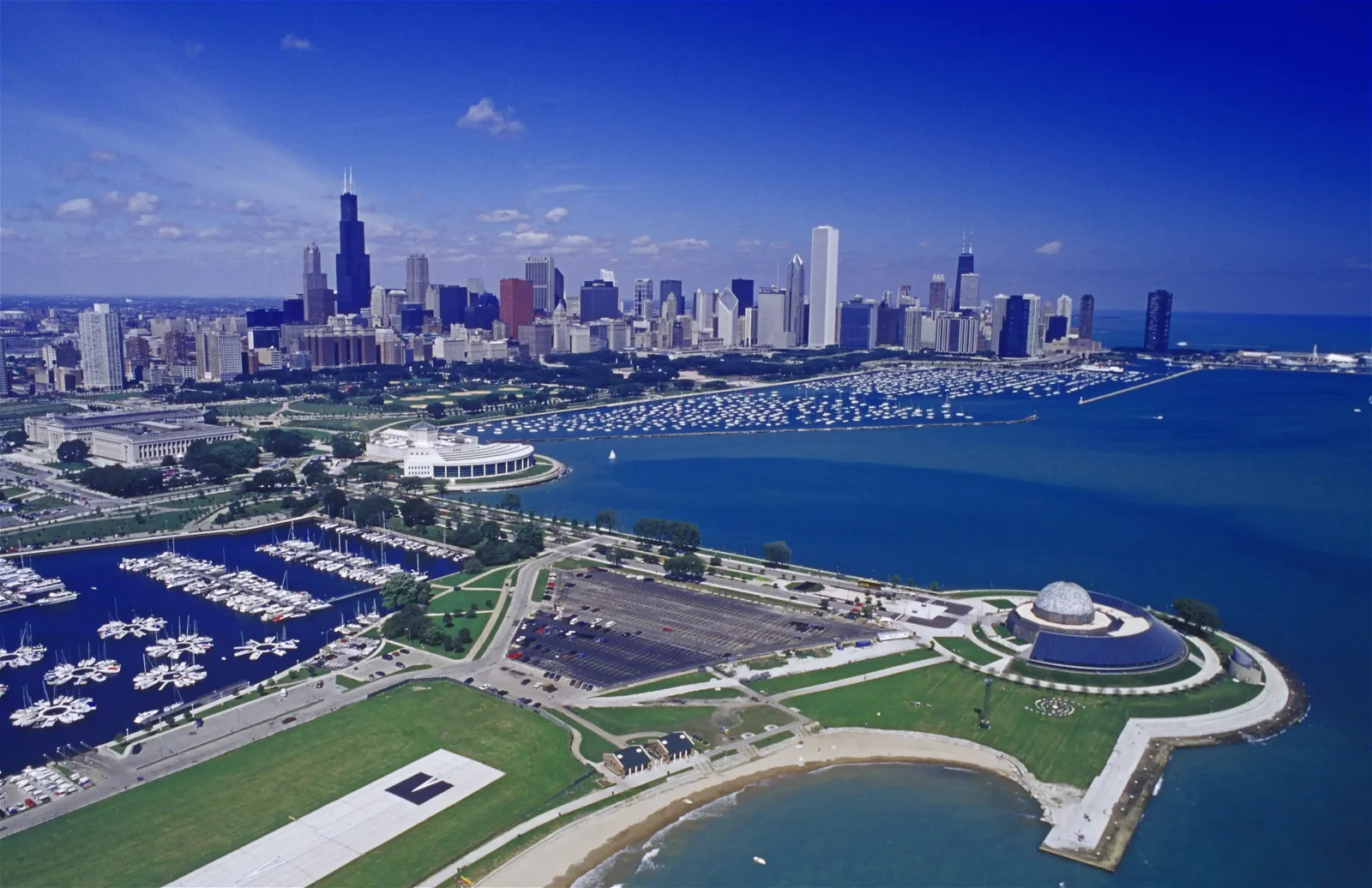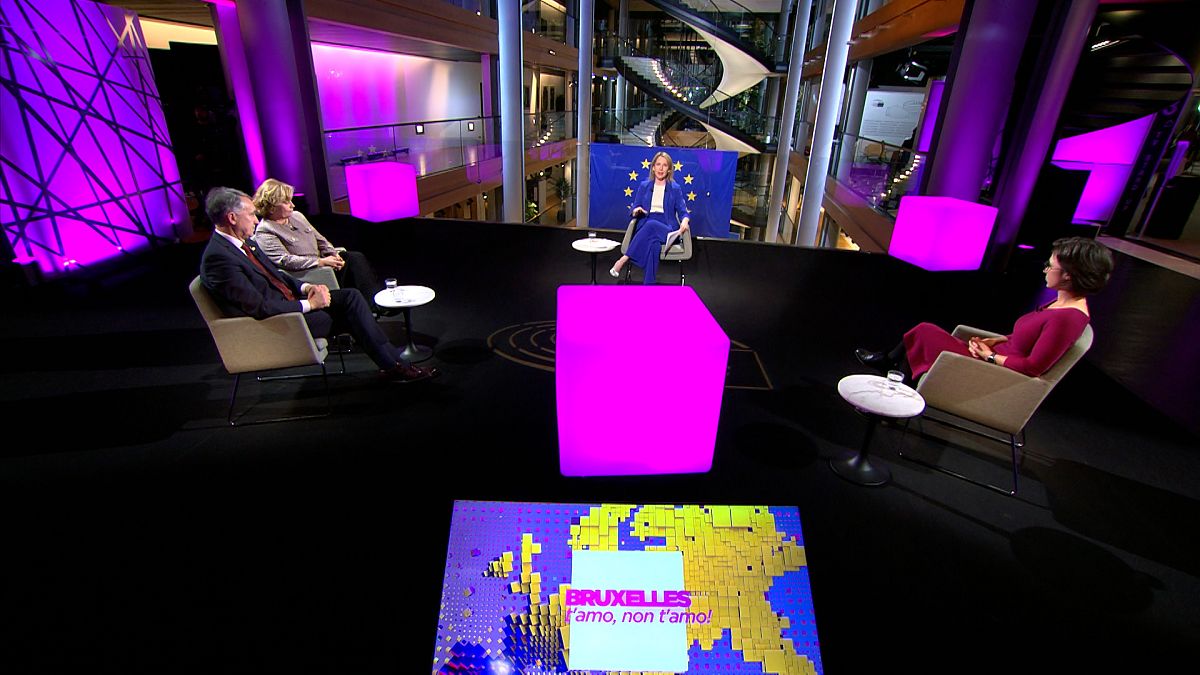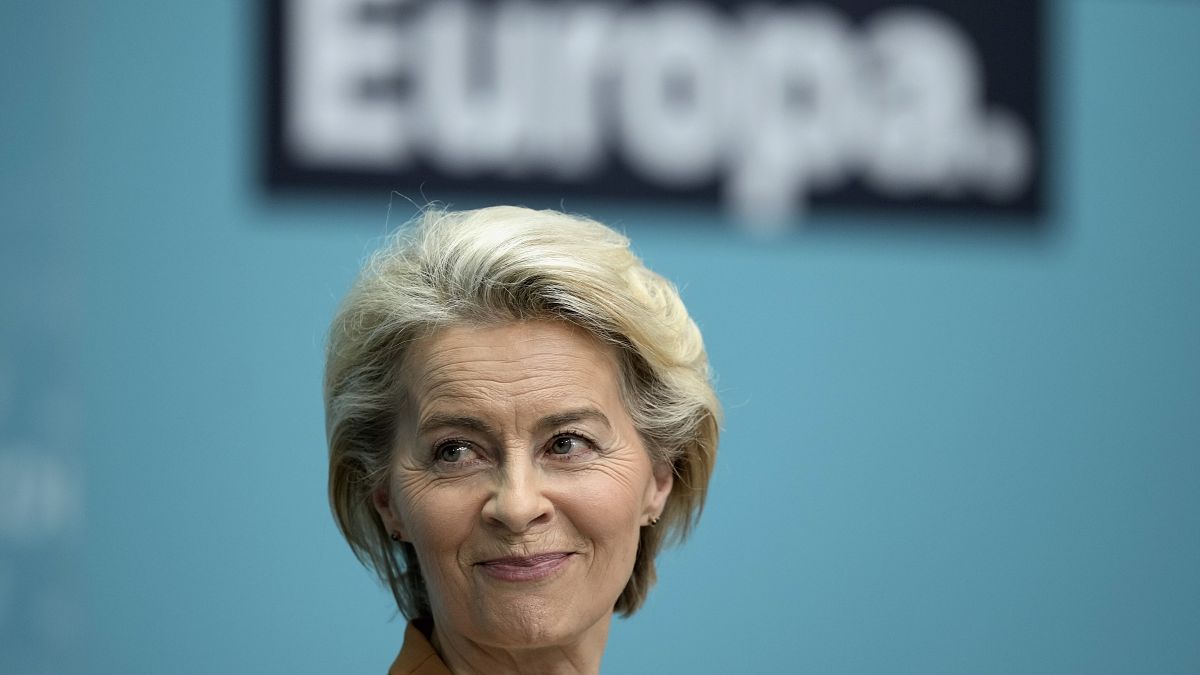World
European countries grapple with internal politics over nuclear energy
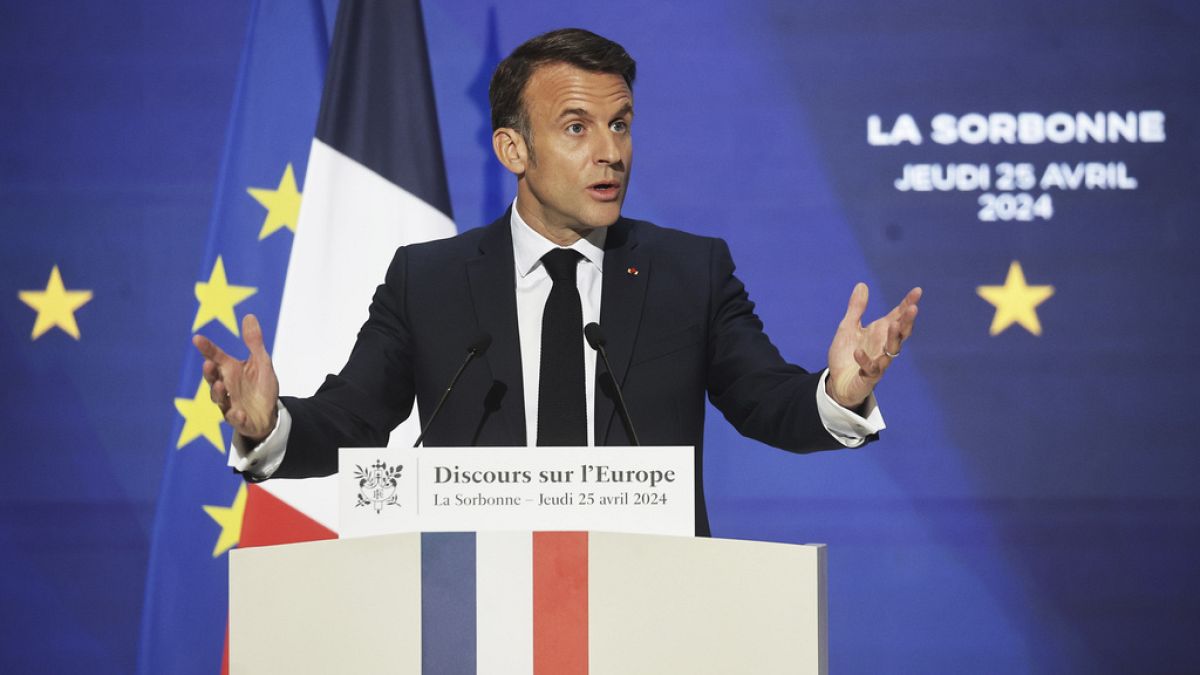
Emmanuel Macron has championed the revival of France’s nuclear program as a central focus of his second presidential term.
With the emphasis on job creation, green investments, and advancements in mini-reactors, the challenges accompanying this nuclear resurgence are manifold.
The President of the Republic had underscored this commitment during his re-election campaign in May 2022. Months earlier, during a visit to the Arabelle turbine manufacturing site in Belfort, Macron unveiled an ambitious nuclear program.
According to the President, this is the main solution to meet the burgeoning electricity demand driven by increased electrification, to achieve carbon neutrality by 2050, and sustain competitive electricity prices to support French businesses.
Macron has unabashedly hailed nuclear power as a “technology of the future”. France’s current fleet of electricity production reactors comprises 56 pressurised water reactors (PWR), classified as “generation II”, along with an EPR (European Pressurised Water Reactor) reactor presently under construction in Flamanville, Manche, designated as “generation III” .
In January, President Emmanuel Macron declared his intention to outline “the primary directions for the next 8” EPR reactors from the summer onwards, as part of the nuclear power revival, following the launch of six new EPR reactors, during a press conference.
Nuclear controversy in Germany
Whilst 65 to 70 percent of electricity in France is generated by nuclear, Germany’s figure was only 1.4 percent in 2023. It is indicative of a complicated relationship between Germany’s political parties and nuclear power.
Amid concerns over gas supplies following Russia’s invasion of Ukraine, three policy options were considered by the government: extending the use of existing nuclear fuel, purchasing new fuel elements, or reopening the recently shut-down plants. The Green Party strongly opposed restarting nuclear power stations.
The handling of Germany’s nuclear phase-out during the 2022 energy crisis has drawn scrutiny towards the country’s economic and environment ministries, both under Green Party leadership, for their approach to closing the last three nuclear power plants.
German Federal Minister for Economic Affairs and Climate Action, Robert Habeck, found himself redirected to the Bundestag’s energy committee to defend his controversial policy amid the energy crisis.
Despite internal discussions and assessments supporting the feasibility of extending the nuclear plants’ lifespans, a change in direction occurred within the environment ministry, citing “reasons of nuclear safety”.
Minister Habeck defended his ministry’s actions, emphasising the need to focus on replacing Russian natural gas rather than relying on nuclear energy for electricity.
The decision to extend the life of the last three nuclear power plants was eventually reached several months later, reflecting a compromise pushed by the liberal Free Democratic Party (FDP) .
The handling of this matter has faced criticism from Germany’s conservative opposition, who argue that the process lacked transparency and openness.
Spain’s ongoing debate
Spain’s energy strategy remains a subject of debate, with differing viewpoints on the role of nuclear and renewable energies in achieving sustainability and energy independence.
The Spanish government announced in December plans to phase out the country’s nuclear reactors, with the first plant shutdown scheduled for 2027.
The energy landscape is influenced by Russia’s strategic leveraging of its gas production capacity and the disruption caused by disputes such as the recent gas supply cut-off by Algeria to Morocco, affecting one of Spain’s gas supply routes.
Greenpeace Spain calls for an accelerated transition away from nuclear energy, critiquing Spain’s energy plan for not prioritising a rapid shift towards 100% renewable energy.
José Luis García, responsible for Greenpeace’s Climate Emergency program, challenges the classification of nuclear energy as ‘green’, emphasising the need to address broader environmental risks associated with nuclear power .
While France looks to bolster its energy security by embracing nuclear power alongside renewables, Spain remains steadfast in its commitment to achieve complete denuclearisation by 2035, as outlined in its Comprehensive National Energy and Climate Plan 2021-2030 (Pniec). Including two nuclear powerplants 100 kilometres from the Portuguese border.
Portugal’s phasing out nuclear, Italy phasing in
Over the past few years, Portugal has taken significant step towards dismantling its long-serving nuclear reactor, which had been instrumental in scientific research and education for over five decades.
Portugal has taken a firm stance against nuclear energy, with former Minister of Environment and Climate Action, João Pedro Matos Fernandes, highlighting its perceived shortcomings during the 26th United Nations climate conference (COP26) in Glasgow.
He emphasised that nuclear energy is deemed unsafe, unsustainable, and economically burdensome.
Italy’s nuclear history saw all four plants closed following a 1990 referendum. A subsequent attempt to reintroduce nuclear power was halted by a 2011 referendum.
Italy’s Chamber of Deputies has launched an inquiry into the role of nuclear energy in its energy transition. The country, the only G7 nation without operating nuclear power stations, shut down its last plant over 30 years ago.
The inquiry aims to explore nuclear energy’s potential contribution to Italy’s decarbonisation by 2030 and climate neutrality by 2050. It was supported by pro-nuclear members but faced abstention from others.
Minister of Environment in Italy, which is hosting the G7 meeting this year, said in a recent speech, “We have continued to work with important private companies both on the fission front, therefore on the new generation NUCLEAR with small reactors, and on the fusion front”
Last March, the Minister of Infrastructure and Transport and Deputy Prime Minister Salvini also said that a modern and industrialised country “cannot say no to nuclear energy.”

World
Ukraine investigates civilian injuries, battles rage in Kharkiv region

World
Philippine mayor accused of acting as Chinese asset amid investigation, tensions

A Philippine mayor faces accusations of acting as a Chinese asset amid a growing territorial dispute between the two countries.
“No one knows her. We wonder where she came from. That’s why we are investigating this, together with the Bureau of Immigration, because of the questions about her citizenship,” Philippine President Ferdinand Marcos told reporters this week.
Alice Guo, the 35-year-old mayor of Bamban, has found herself in the middle of a potential scandal over her origins and allegiances. She claimed to have grown up on a pig farm and had raised no concerns prior to a strange discovery made in her town this month, the BBC reported.
Law enforcement discovered that an online casino by the name of Philippine Offshore Gambling Operator (Pogo) in Bamban actually served as a front for a “scam center,” which had close to 700 workers — including over 200 Chinese nationals — who were posing as “online lovers.”
CHINA’S MILITARY MONITORS ROUTE TAKEN BY FILIPINO ACTIVISTS SAILING TOWARD DISPUTED SHOAL
Bamban Mayor Alice Guo speaking with local law enforcement in a photo posted on her official Facebook page earlier this week. (Facebook)
The raid on the site in March rescued all of those workers, who claimed they were forced to work for the owners. The center tried to con victims with a “pig butchering” scam, in which a scammer adopted a fake identity to gain trust and then offered a romantic relationship to manipulate and steal from the victim.
Guo found herself entangled in the incident when it came to light that she owned half the land where Pogo was located.
LAWMAKERS BRAWL AS TAIWAN’S PARLIAMENT DESCENDS INTO CHAOS
The nation’s Senate brought her into a hearing to testify, and she claimed she had sold the land before she ran for mayor two years earlier, along with assets that included a helicopter and a Ford Expedition, both registered under her name but allegedly sold off before her campaign, the South China Morning Press reported.
Other irregularities raised concerns about her status. She only registered with the Commission on Elections to vote in Bamban one year before she ran and won as mayor.

Alice Guo (far right) attends an event for Philippine President Ferdinand Marcos. (Facebook)
She also admitted she only registered her birth certificate with local authorities at the age of 17 and gave few details about her background other than she was born in a house and home-schooled in a family compound where they raised pigs.
Senators accused Guo of providing “opaque” answers to their questions about her background, leading one senator to ask if Guo was a Chinese asset. She fired back that she was “not a coddler, not a protector of Pogos.”
AFTER DOZENS DIE IN FLOODS, INDONESIA SEEDS CLOUDS TO BLOCK RAINFALL
China and the Philippines have found themselves in renewed territorial disputes as Beijing tries to enforce control over waters around the Philippines, leading to clashes between Chinese Coast Guards and Filipino fishermen.
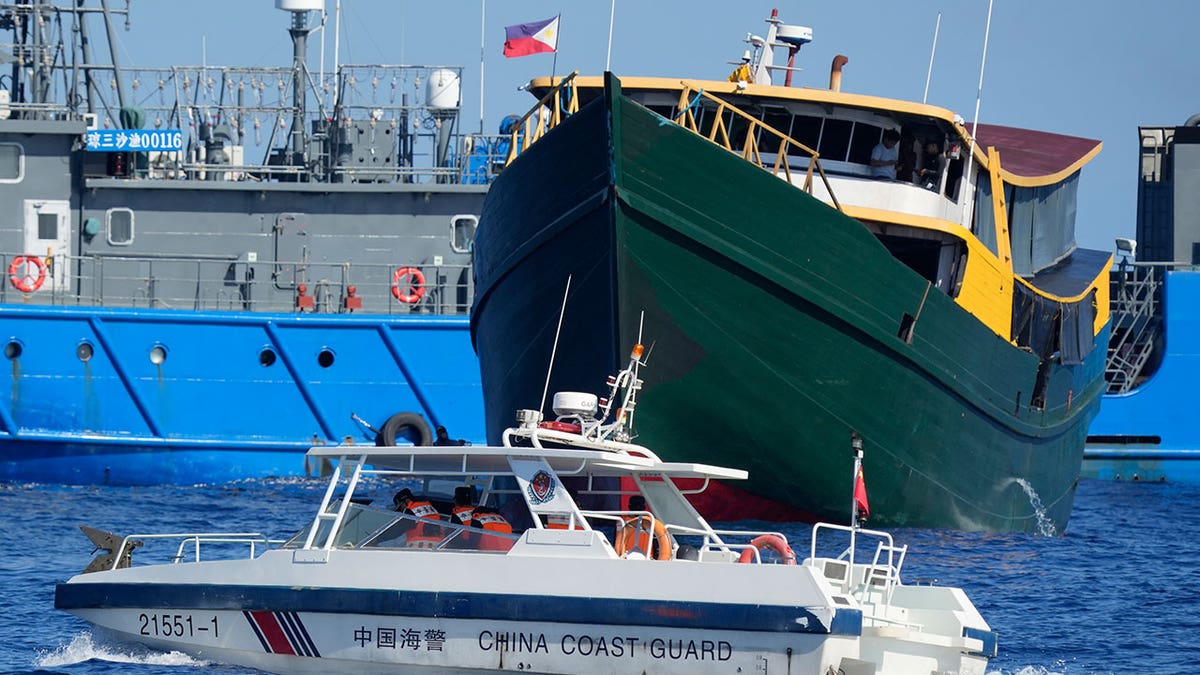
A Chinese coast guard boat moves near the Philippine resupply vessel Unaizah May 4 (in green) after it was hit by a water cannon blast, causing injuries to multiple crew members as they tried to enter the Second Thomas Shoal, locally known as Ayungin Shoal, in the disputed South China Sea March 5, 2024. (AP Photo/Aaron Favila)
Last year saw a series of near clashes between the two coast guards near the Second Thomas Shoal. The Philippine authorities protested China’s use of a water cannon and military-grade lasers.
China established a claim to the Scarborough Shoal in 2012, after which the Philippines formally launched a protest that went before a United Nations-backed tribunal. A 2016 ruling went against China, rejecting Beijing’s claims on “historical grounds,” but Beijing rejected the arbitration and its outcome.
The Associated Press contributed to this report.
World
Sanchez: “I will recognise the Palestinian state next Wednesday”.

Spain’s prime minister said during a rally in Catalonia that he is going to propose the parliament’s official recognition of Palestine as a state on Wednesday, 22 May.
Sanchez defended the decision “out of moral conviction”, considering it “a just cause” and the “only way” to achieve peace and security in the Israeli-Palestinian conflict.
Ireland, Malta and Slovenia are expected to follow suit, and have already agreed to take the first steps in that direction.
In a phone call on Saturday, Taoiseach Simon Harris and Norwegian Prime Minister, Jonas Gahr Store agreed to remain in close consultation in the days ahead. Norway’s parliament adopted a government proposal in November for the country to be prepared to recognise an independent Palestinian state.
Harris and Store said that the deteriorating humanitarian conditions in Gaza underscored the need for an immediate ceasefire and for unhindered access for aid.
Earlier this week, Slovenian Prime Minister Robert Golob said his country would recognise Palestine’s statehood by mid-June.
Sanchez meanwhile criticised the Popular Party for refusing to recognise the Palestinian state and responded to former President Jose Maria Aznar by stating that “Spain will recognise it”.
The prime minister also acknowledged his party’s positive result in the Catalan elections of 12 May and said that Salvador Illa would make a good President of the Generalitat.
Spain would be the 10th European country to recognise the Palestinian State
There are already nine countries in the EU that have recognised Palestine as a state and Spain would be the tenth. On the list are: Bulgaria, Cyprus, Czech Republic, Hungary, Malta, Poland, Romania, Slovakia, Sweden and Slovakia.
Sanchez confirmed on Friday that Spain’s recognition will not be made at Tuesday’s Council of Ministers, as had been suggested.
The prime minister said that his position on the Israel-Hamas conflict is much like his country’s support for Ukraine following Russia’s invasion more than two years ago.
He stressed that Spain demanded ”respect for international law from Russia, and from Israel, for the violence to end, the recognition of two states, and for humanitarian aid to reach Gaza”.
Sanchez added his voice to a chorus of other European leaders and government officials who have said that they could support a two-state solution in the Middle East, as international frustration grows with Israel’s military actions in the Palestinian territories.
French President Emmanuel Macron said last month that it’s not ”taboo” for France to recognise a Palestinian state. British Foreign Minister David Cameron said that the United Kingdom could officially recognise a Palestinian state after a cease-fire in the Israel-Hamas war.
Five months after Hamas militants attacked Israel on 7 October, killing about 1,200 people and taking 250 others hostage, the Israeli military has responded with air and ground assaults that have killed more than 35,386 Palestinians, according to the Gaza Health Ministry.
Why does Spain support recognition of Palestine as a sovereign state?
Spain has been historically close to the Arab world and, as such, the nation is actively trying to push a line more favourable to Palestinian aspirations within the European Union.
In a speech made shortly after his re-election last year, Sanchez promised that his new government’s “first commitment” on foreign policy would be to “work in Europe and Spain to recognise the Palestinian state”.
At the same time, he said he was “on the side of Israel” in the face of “the terrorist attack” of 7 October, but also called on the Jewish state to put an end to the “indiscriminate killing of Palestinians”.
The stance comes at a time when many Western countries are facing criticism in the Arab world for being seemingly too favourable towards Israel.
In 2014, under a conservative government, the Spanish Parliament adopted a resolution calling for the recognition of the Palestinian state, supported by all political parties.
The vote, though, was non-binding and not followed by any action.
In Europe, several countries have taken this step in a more effective way.
They include Sweden, Hungary, Malta and Romania – but none of the main EU member states have done so, meaning that Spain could become a pioneer.
A brief history of Spanish-Arab relations
Geographically close to the Maghreb region of North Africa, Spain turned to Arab countries during the Franco dictatorship which ran from 1939 to 1975 in order to circumvent its isolation in the West.
It was not until 1986, however, that the nation established official relations with Israel.
The relatively late date was a consequence of tensions born from Israel’s opposition to Spain’s entry into the UN at the end of the Second World War, due to its proximity to Nazi Germany.
In 1993, they played a role in the Oslo Accords, through which Israel and the Palestine Liberation Organization mutually recognised each other as part of the peace process.
Overall, though, Spain remains perceived by many as a pro-Arab country.
At the end of October, a mini-diplomatic crisis even broke out with the Israeli embassy after controversial statements by a far-left Spanish minister who spoke of a “planned genocide” in Gaza.
With much of Europe firmly pro-Israel, Isaias Barrenada, a professor at the Complutense University of Madrid, said it will be an uphill battle for Sanchez.
”It is difficult to imagine that Spain has the capacity to reorient the European position,” Barrenada told AFP, but “it can contribute to showing that there are sensitivities within the EU.”
-

 Politics1 week ago
Politics1 week agoOhio AG defends letter warning 'woke' masked anti-Israel protesters they face prison time: 'We have a society'
-

 Finance1 week ago
Finance1 week agoSpring Finance Forum 2024: CRE Financiers Eye Signs of Recovery
-

 World1 week ago
World1 week agoIndia Lok Sabha election 2024 Phase 4: Who votes and what’s at stake?
-

 Politics1 week ago
Politics1 week agoBiden’s decision to pull Israel weapons shipment kept quiet until after Holocaust remembrance address: report
-

 News1 week ago
News1 week agoThe Major Supreme Court Cases of 2024
-

 News1 week ago
News1 week agoTornadoes tear through the southeastern U.S. as storms leave 3 dead
-

 World1 week ago
World1 week agoA look at Chinese investment within Hungary
-

 Politics1 week ago
Politics1 week agoTales from the trail: The blue states Trump eyes to turn red in November
